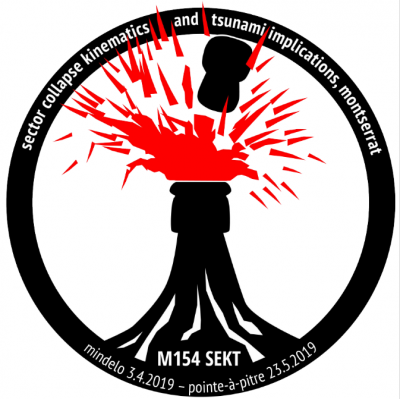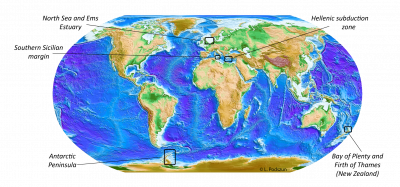- Modelling of Sedimentation Processes
- Projects
Projects
The aim of the project SEKT - Sector collapse kinematics and tsunami implications - is to improve the understanding of submarine landslides and flank collapses. These may trigger mega-tsunamis and endanger communities as well as seafloor installations. The data collected on Meteor Trip 154-2 in 2019 is being surveyed and will give information on many questions regarding the processes that lead to those hazardous proceedings.

The international European Training Network SLATE - Submarine Landslides and their Impact on European Continental Margins - started in 2018. It is funded by the European Union and it's aim is to
- to understand key factors triggering submarine landslides, the subsequent motion and evolution of failed material, as well as ensuing geohazards, e.g. tsunamis; and
- to integrate an innovative broad range of scientific disciplines and private sector needs into a novel training-through-research and co-supervision of 15 ESRs

The International Research Training Group INTERCOAST – ‘Integrated Coastal Zone and Shelf-Sea Research’ was a collaboration between the Universities of Bremen (Germany) and Waikato (New Zealand). The project was funded by the DFG and lasted from 2009 until 2018.
Research themes of this projekt were dealing with global and climate change which have strong impacts in coastal and shelf-sea areas and are of geoscientific, socio-economic and legal interest.

Of course we are constantly working on different projects and doing research work. Below you can find some of our current activities and also those we have already completed:
Current researches
|
Name |
Project |
Topic |
|
Kristina Sass |
Sector collapse kinematics and tsunami implications |
|
Completed researches






